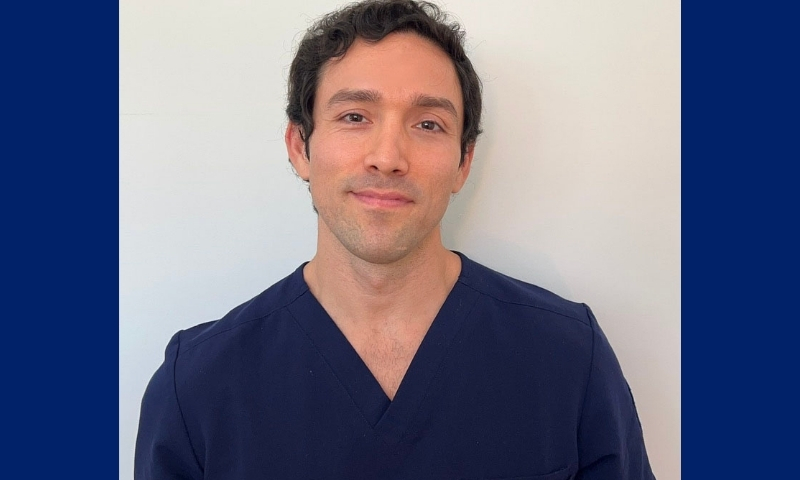Empowering Marginalized Communities: One Student’s Path to Nursing
Edgar Villa's journey from Los Angeles to Duke highlights his commitment to advancing health equity and building trust in healthcare for marginalized communities.

Edgar Villa began working in a hospital near his hometown of Los Angeles because he wanted clinical experience before committing to pursuing his nursing degree, which seemed to him a professional pursuit with the perfect mix of medicine and compassionate interpersonal connection. During his time at the hospital, Villa discovered a new motivation to pursue nursing—witnessing real deficits in care that result from a lack of representation among health care providers.
“I want to give minorities and marginalized people a reason to trust the health care system, despite its historical failures to provide them with the care they need and deserve,” Villa said. Latinos make up a fifth of the U.S. population, but only about 9% of all health care practitioners identify as Hispanic. “I want to advocate for patients like the ones I met at my hospital, with whom I was able to use my Spanish and cultural competence to build small but meaningful connections in moments of vulnerability.”
Villa chose Duke University School of Nursing to pursue his Accelerated Bachelor of Science in Nursing (ABSN) because of the School’s commitment to providing scholarship support to students who are motivated and capable but may not have the financial means to cover the costs. He was also struck by how so much of the work done by the School’s faculty aligned with his own passions.
“I was impressed by the work that is being done by many of the professors at our nursing school and how it was aimed at advancing social justice and promoting health equity.” Specifically, Villa cited Associate Professor Amie Koch, DNP, FNP-C, RN, ACHPN, and her work with the LGBTQ+ community; Associate Professor and Assistant Dean of the PhD Program Rosa Gonzales-Guarda, PhD, MPH, RN, FAAN, and her work on intimate partner violence, substance abuse, HIV and mental health among Latinos in the U.S.; and Ernest J Grant, PhD, RN, FAAN, vice dean of the Office of Diversity, Equity, Inclusion, and Belonging.
As a first-year pre-licensure student, Villa said he values the positive and collaborative environment of his cohort and those a few semesters ahead and has felt supported by the faculty and advisers. “The professors here are accessible and involved and it is exactly what many students need out of their education.”
While Villa plans to further his education with an advanced nursing degree after he completes his pre-licensure degree, he’s still open to different avenues of focus and appreciates the exposure to different types of nursing that he is getting in the School. “Every time I gain experience in a new field of nursing, I can imagine myself working in that environment,” Villa said. “One thing I know for certain is that after I graduate, I want to end up using this degree to help advance health equity within the Latino population in the USA.”